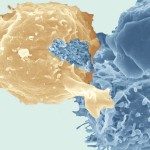Lien vers Pubmed [PMID] – 35760268
Lien DOI – 10.1016/j.exger.2022.111873S0531-5565(22)00181-4
Exp Gerontol 2022 Sep; 166(): 111873
The consumption of soft drinks has increased considerably in recent decades, mainly cola soft drinks. Excessive consumption of cola-based soft drinks is associated with several diseases and cognitive decline, particularly memory impairment. Furthermore, diets with high sugar can promote insulin resistance, metabolic syndrome, and dyslipidemia.Thus, the present study aimed to evaluate the effect of cola soft drink intake on behavioral alterations and oxidative damage in 2-, 8- and 14- month-old male Wistar rats.The soft drink groups drank soft drink and/or water ad libitum during 67 days, the control groups ingested only water. Radial-arm maze and Y-maze were used to evaluate spatial memory, open-field to evaluate the habituation memory, and inhibitory avoidance to evaluate aversive memory. The behavioral tests started at the day 57 and finished at day 67 of treatment. At 68th day, the rats were killed; frontal cortex and hippocampus were dissected to the analysis of antioxidants enzymes catalase (CAT) and superoxide dismutase (SOD); and the oxidative markers thiobarbituric acid reactive substances (TBARS) and dichloro-dihydro-fluorescein diacetate (DCFH) were measured in the hippocampus.The cola-based soft drink intake caused memory impairment in the radial-arm maze, Y-maze task, and open-field in the 2- and 8-month-old rat, but not in the 14-month-old. There were no difference among groups in the inhibitory avoidance test. In the frontal cortex, soft drink intake reduced CAT activity in the 8-month-old rats and SOD activity in the 8- and 14-month-old rats. In the hippocampus, the soft drink increased CAT activity in 2- and 8-month-old rats, increased DCFH levels at all ages, and increased TBARS levels in 2-month-rats. Therefore, the results show that long-term soft drink intake leads to memory impairment and oxidative stress. The younger seems to be more susceptible to the soft drink alterations on behavior; however, soft drink caused alterations in the oxidative system at all ages evaluated.


